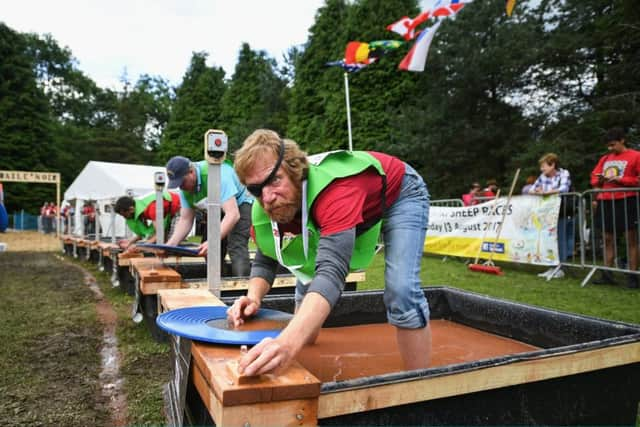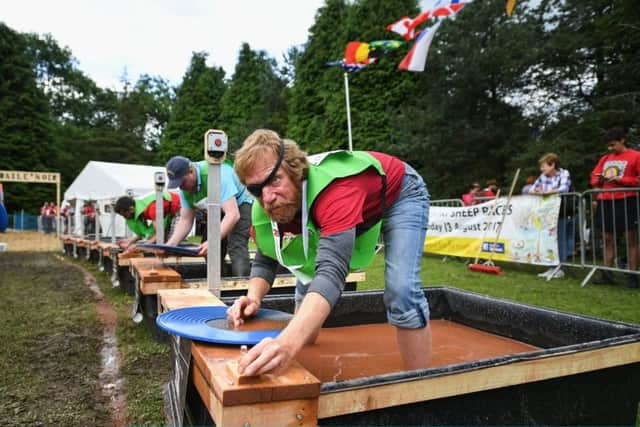World Gold Panning Championships get under way in Moffat


The World Gold Panning Championships are being held in the UK for only the second time since the event was first staged in Finland in 1977, attracting more than 400 enthusiasts from more than 20 countries.
The six-day tournament, which sees competitors attempting to remove every speck of gold from buckets of sand and gravel in as fast a time as possible, ends today with the crowning of a men’s and women’s champion.
Advertisement
Hide AdAdvertisement
Hide AdGold panning might not seem like an obvious spectator sport, but such is the popularity of the tournament that a stand has been built overlooking the water-filled troughs where the numbered competitors go about their frantic sifting.


After getting through their allotted 20kg bucket of sand, they painstakingly pick through the finer material that remains in the centre of their grooved plastic pans, searching for minuscule pieces of gold and depositing them in a water-filled tube.
The twist? They do not know how many gold flakes are in each bucket. With every missed piece incurring a three-minute time penalty, the sport calls for strength, iron nerves and excellent eyesight.
For former world champion Mattias Kron Eriksson, 39, the sport has been a lifelong pursuit. The big bearded Swede began panning at the age of 10 and has been attending tournaments for 16 years. He even has a water trough for speed training in the basement of his house. “To be a good gold panner you have to keep the nerves under control,” he said. “I try to pan without thinking because if you start to think, something will go wrong.
“You have to concentrate on your own race and not listen to other people. The picking is also very important: if you are a quick picker, you can pan for much longer than the others.”


Unfortunately for Mr Eriksson, this year’s tournament ended early for him. He was eliminated in the quarter- finals after missing a piece of gold and incurring a three-minute penalty – his time of 5min 14sec not fast enough to make the cut.
He points out that the type of sand and gravel used in the tournament is sourced locally, meaning it is different in each country and can have a major impact on a panner’s speed. The type of gold is also crucial, as it can act differently in the pan or prove tricky to pick up.
The last time the world championships were held in the UK was in 1992, in the South Lanarkshire village of Leadhills. It was attended by only 150 people, including Richard Deighton, who is the main organiser of this year’s event.
Advertisement
Hide AdAdvertisement
Hide AdHe believes that hosting the tournament is a coup for Moffat, which is often overlooked.
He said: “You’d be hard pressed to find any accommodation this week, most places are completely booked up. It’s a significant boost to tourism, and Moffat’s name is out there on the world stage.”
Asked what attracts people to the sport, he said: “It’s the love of gold really. It gives you such a nice feeling to see gold in your pan, to pick it up and capture it.
“Once you get the gold fever, it never leaves you.”